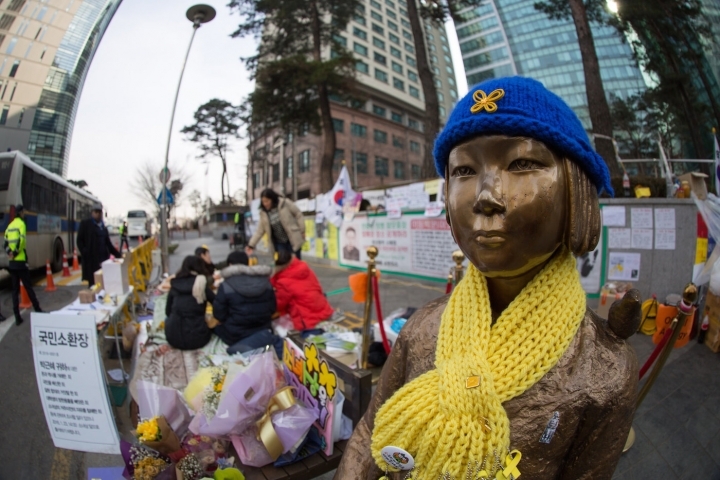Municipal officials in Busan, South Korea, have permitted the return of a sculptural memorial to Korea’s ‘comfort women’ – women forced into sex slavery by the Japanese army during Japan’s colonial rule of Korea between 1910 and the end of the Second World War, Hyperallergic and the New York Times report. The statue was installed outside the Japanese consulate by activists protesting against the South Korea-Japan agreement reached a year ago to resolve the historic controversy between the two countries over the sex slavery issue. The agreement involved an official apology from Japan as well as a one-billion yen (£6.9m) payment for a fund in support of surviving victims. The statue had been removed by the authorities after its installation on 28 December, but the announcement that its return would not be opposed followed Japan’s defence minister offered prayers at a controversial war shrine in Tokyo (which honours millions of mostly Japanese war dead including senior military and political figures convicted of war crimes), causing an outpouring of public anger.
The bronze statue, representing a young, seated woman with a small bird on her shoulder, is a replica of the one sited outside the Japanese embassy in Seoul, created by sculptors Unseong Kim and Seogyeong Kim. Some 30 copies of the Seoul monument – officially titled Statue of Peace – and others inspired by it have been erected elsewhere in South Korea and around the world in cities host to significant Korean communities, including Washington, DC.
4 January 2017
4 January 2017
